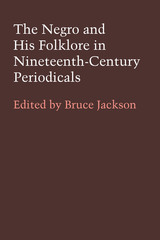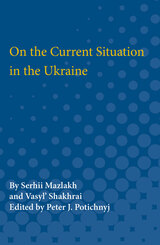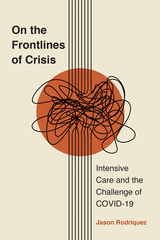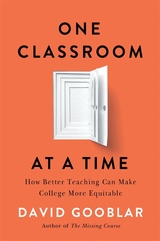
Though study of American Indian cultures had been fostered for several centuries by missionaries and explorers, it was not until he nineteenth century that a disciplined and systematic approach to the study of New World cultures began to emerge. With Schoolcraft, Powell, Boas, and others, an adventurers’ avocation first became a profession, and it is to these early scholars that we owe the major theoretical perspectives and insights which provided a grounding for American anthropology and folklore studies.
In these twenty-one essays, many of which originally appeared in such now obscure periodicals as Southern Literary Messenger, American Whig Review, and DeLestry’s Western Magazine, Clements presents representative works by most of the major early figures in the field. The collection includes early statements and applications of most of the theoretical approaches to folklore employed in the nineteenth century, and it encompasses each of the major folklore genres studied by nineteenth-century researchers.
Extensive headnotes to each essay provide information about the author, discussion of the theoretical context of each essay, and direction to more contemporary treatments of the theories and materials involved, and the problems addressed. These together with a brief introduction tracing the genesis of American folklore studies, and chronological arrangement of the articles themselves, make Native American Folklore a convenient introduction to and survey of the major ideas and figures of American folklore studies in its formative period.

In the eyes of many white Americans, North and South, the Negro did not have a culture until the Emancipation Proclamation. With few exceptions, serious collecting of Negro folklore by whites did not begin until the Civil War—and it was to be another four decades before black Americans would begin to appreciate their own cultural heritage. Few of the earlier writers realized that they had observed and recorded not simply a manifestation of a particular way of life but also a product peculiarly American and specifically Negro, a synthesis of African and American styles and traditions.
The folksongs, speech, beliefs, customs, and tales of the American Negro are discussed in this anthology, originally published in 1967, of thirty-five articles, letters, and reviews from nineteenth-century periodicals. Published between 1838 and 1900 and written by authors who range from ardent abolitionist to dedicated slaveholder, these articles reflect the authors’ knowledge of, and attitudes toward, the Negro and his folklore. From the vast body of material that appeared on this subject during the nineteenth century, editor Bruce Jackson has culled fresh articles that are basic folklore and represent a wide range of material and attitudes. In addition to his introduction to the volume, Jackson has prefaced each article with a commentary. He has also supplied a supplemental bibliography on Negro folklore.
If serious collecting of Negro folklore had begun by the middle of the nineteenth century, so had exploitation of its various aspects, particularly Negro songs. By 1850 minstrelsy was a big business. Although Jackson has considered minstrelsy outside the scope of this collection, he has included several discussions of it to suggest some aspects of its peculiar relation to the traditional. The articles in the anthology—some by such well-known figures as Joel Chandler Harris, George Washington Cable, Thomas Wentworth Higginson, John Mason Brown, and Antonin Dvorak—make fascinating reading for an observer of the American scene. This additional insight into the habits of thought and behavior of a culture in transition—folklore recorded in its own context—cannot but afford the thinking reader further understanding of the turbulent race problems of later times and today.
READERS
Browse our collection.
PUBLISHERS
See BiblioVault's publisher services.
STUDENT SERVICES
Files for college accessibility offices.
UChicago Accessibility Resources
home | accessibility | search | about | contact us
BiblioVault ® 2001 - 2025
The University of Chicago Press









